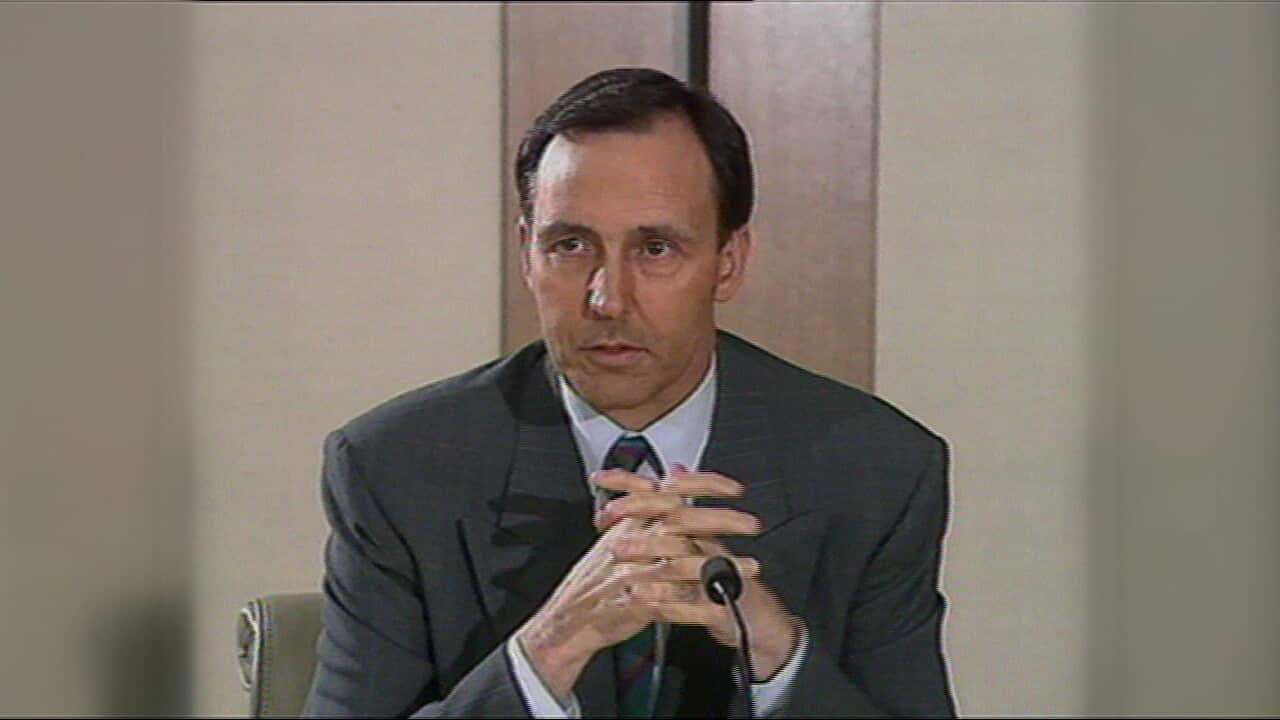In 1991, under Prime Minister Paul Keating, Australia moved to expand its relationship with Iran by focusing on trade relations.
But cabinet documents released by the National Archives and made public, reveal the cabinet had security concerns about "the growing Iranian presence in Australia".
It was briefed that "Iranian clandestine interference presents a threat to Australia's security" and could be managed by refusing visas to Iranian diplomatic officials considered likely to engage in "activity prejudicial to Australia's security".
Any Iranian officials already in Australia who presented a risk according to intelligence agencies were to be declared persona non grata and have their diplomatic or consular status withdrawn.
It followed a violent attack at the Iranian embassy in Canberra on April 6, 1992.
Political protesters set rooms alight, smashed a car and attacked a staff member with a screw driver.
Australian taxpayers paid almost half a million dollars compensation for the damage, stolen goods and injuries.
Cabinet papers show while the Keating government followed international practice by footing the bill, it also believed the payment was necessary to stem some of the criticism about the Commonwealth's failure to provide substantial diplomatic protection.
The attack followed a worldwide reaction by Mujahideen sympathisers over an Iranian jet attack on a base inside Iraq.
Iranian embassies and missions were attacked in Germany, France, the United Kingdom, Switzerland, Sweden, Holland, Norway, the United States and Canada.
The Iranian ambassador to Australia at the time, Dr Mohammad-Hassan Ghadiri Abianeh, said Australian Federal Police had been told an attack was imminent but did not increase security.
"We didn't tell them the probability of an attack, we told them that the attack will take place certainly," he said.
But the ambassador was under close watch himself.
The Keating cabinet was concerned about his attempts to claim $1.77m for injuries and stress to staff.
It was noted the embassy had cooperated to a "limited extent" to provide exact details.
'The answer is, mate, because I want to do you slowly'
The early nineties marked the beginning of Paul Keating's reign as Prime Minister after he took down Bob Hawke in a Labor leadership tussle.
He made his mark early on with colourful language in the chamber.
One of his most famous lines came when then opposition leader, John Hewson, asked, "If you are so confident about your view of Fightback, why will you not call an early election?"
Mr Keating replied, "The answer is, mate, because I want to do you slowly."
But despite the humour, the Keating government was dealing with the repercussions of the recession Mr Keating said "Australia had to have".
The budget deficit had surpassed $15bn and unemployment spiked at more than 11 per cent - the highest rate since the great depression.
Australian National University historian, Nicholas Brown, says economic concerns framed many of the decisions at the time.
"Cabinet is told repeatedly, it's not kind of working, but also the fact that it's not working is making it so much harder for us to fund the promises that we've made," Mr Brown told SBS News.
"That's where the issue of deferred tax cuts, the ramping up of taxation on cigarettes, tobacco, unleaded fuel comes from.
"All of this becomes part of that awkward message that the Keating Government is having to preach, saying we're not going to go down the Liberal's route of putting a GST on everything but equally we're kind of having to impose taxes on basic kind of consumables."
The break-up of former Yugoslavia and the impact on Australia
More than three million people were displaced when the country formerly known as Yugoslavia was torn apart.
Australia opened its doors to hundreds of Serbian, Croatian and Bosnian refugees but the Keating cabinet was warned the size of the community made for a fragile situation given the possibility some could bring with them the affects of war.
Mabo and the role Keating played as Prime Minister
The High Court's Mabo decision on 3 June 1992 was a long awaited acknowledgement of the history in Australia of Indigenous dispossession.
It rejected the concept that Australia was terra nullius, or land belonging to no one, and it paved the way for native title.
The Indigneous Affairs Minister at the time was Robert Tickner and he believes the government's response to the High Court decision firmed up Paul Keating's place in history.
"There was really only one shot at this, you know, history would have absolutely condemned us if we had come up with a tawdry, half-baked and unworkable outcome," Mr Tickner told SBS News.
"And as Paul Keating has said himself, the cabinet did in 18 months what sometimes would take a decade in other countries to achieve."
On May 27 this year, Australia will mark 50 years since the 1967 referendum that allowed Indigenous Australians to be included in the national census.
Mr Tickner is calling on Malcolm Turnbull to use this year's anniversary as a platform for further change.
He says it is a job only a prime minister can do.
"If you want to really drive change let me tell you, no Aboriginal Affairs Minister - whether it's Mother Teresa, Nelson Mandela or me, or the current one - no one can change the rules," he said.
"It's got to be driven as a national leadership issue, as a national priority by our Prime Minister."
Share


